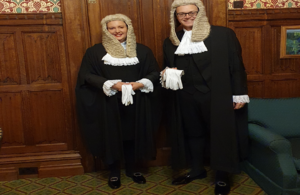Urging the Syrian regime to improve its appalling human rights record: UK statement at UN
Thank you very much Mr Chair.
The United Kingdom strongly reiterates its support for this resolution and welcomes other co-sponsors. This language sets out the international community’s shared concerns and urges Syria to improve its appalling human rights record.
15 March 2022 saw the 11th anniversary of the conflict in Syria, marking over a decade of atrocities in Syria. The UK condemns these acts and strongly supports efforts to hold perpetrators of war crimes and crimes against humanity to account.
The UK remains deeply concerned by the situation over the past 12 months. The Syrian regime continues to commit crimes against humanity, war crimes, and human rights violations against the Syrian people, including the use of sexual violence, arbitrary detention, ill-treatment, and torture.
Tens of thousands of Syrians have been forcibly disappeared and detained during the conflict. Thousands of families wait to hear about loved ones. It is crucial that Syrians receive information about these disappeared persons, and that efforts are increased to deliver answers and accountability for victims of the regime. The regime must provide answers.
The humanitarian situation has worsened dramatically since cross-border access was reduced. An estimated 14.6 million people need humanitarian assistance and approximately 12 million people face acute food insecurity. It is vital that life-saving cross-border access continues, particularly in the harsh winter months, and with a Cholera outbreak spreading in the region.
The UK also defends the use of country-specific resolutions in the Third Committee. The Committee’s remit focuses on the examination of “human rights issues that affect people all over the world”. Such resolutions are only tabled for the most serious or prevalent violators.
The Syrian people must not be forgotten and must not be left to resolve this crisis alone. Through the adoption of this resolution, the international community can hold the Syrian regime to account and help ensure it fully complies with its international legal and human rights obligations. Therefore, we would urge all states to vote for this resolution.
Thank you.

